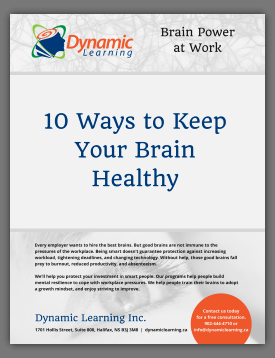Imagine waking up in a pool of blood, with a cut needing five stitches and a broken cheekbone. That is what happened to Arianna Huffington when she collapsed, hitting her head on the corner of her desk, due to chronic lack of sleep.
Skimping on sleep has a high price. It has been linked to increased risk of diabetes, coronary heart disease, strokes, weight gain, and Alzheimer’s.
Burnout, stress and sleep deprivation are all common things we face in the digital hyper-connected age.
Sleep difficulties serve as risk factors for the development of anxiety and depression and, at the same time, anxiety and depression are associated with the development of sleep problems.
Well-planned strategies are essential to deep, restorative sleep you can count on, night after night. By learning to avoid common enemies of sleep and trying out a variety of healthy sleep-promoting techniques, you can discover your personal prescription to a good night’s rest.
The key is to experiment. What works for some might not work as well for others. It’s important to find the sleep strategies that work best for you.
How to get a good night’s sleep
- Keep a regular schedule. Go to bed and get up at the same time every day, including weekends. Set a “go to bed” alarm to remind yourself to start your bedtime routine and be in bed 8 hours before you need to wake up for work.
- Turn off all bright blue light sources – TV, iPads, phones and any other device which shines a bright light into your eyes. If you have children and/or adolescents at home, work with them to create healthy sleep habits. This may include locking all screens in one room or container at least two hours before their bedtimes, and not unlocking them until everyone is awake at the normal time in the morning. See Are You Addicted to Your Phone? and Wired and Tired.
- Take some time to relax and unwind before going to bed. Develop a sleep routine. If you do the same things before you go to bed each night, it will train your brain to prepare for a good sleep.
- Great habits, like getting regular exercise and eating well, can help you sleep. But don’t exercise within a few hours of bedtime.
- If you are sleep deprived, avoid napping during the day until you can get to sleep and stay asleep for 7-8 hours regularly.
- Avoid caffeine, nicotine and alcohol. Coffee, colas, black tea, and chocolate can take as long as 8 hours to wear off. Alcohol makes you drowsy but can interrupt sleep, leading to poor quality of sleep. Those who smoke have more difficulty getting to sleep and wake up more often at night, compared to non-smokers.
- Some medications, like those for high blood pressure, can affect your sleep. Check with your doctor to see whether you can take them earlier in the day.
- Make sure your room and bed are conducive to sleep. If you’re not sleeping well, it may be time for a new mattress, light-blocking blinds and curtains and, if outside noises intrude, a steady white noise, like a fan. Your bedroom should be dark, cool and quiet.
- Try to make dinnertime earlier in the evening, and avoid heavy, rich foods within two hours of bed. Fatty foods take a lot of work for your stomach to digest and may keep you up. Also be cautious when it comes to spicy or acidic foods in the evening, as they can cause stomach trouble and heartburn.
- If you are hungry at bedtime, try a light snack of half a turkey sandwich on whole grain bread, granola with milk or yogurt, or a banana (but not all three).
- To improve your circadian rhythm turn your face to the sun in the morning, avoid sunglasses early in your day, face natural light as much as possible during the day, and dim the lights in the evening.
- If your thoughts keep you awake, try getting up and writing them down. Using Rational Thinking can be very helpful.
- If you’re having difficulty sleeping, get out of bed. Go into another room and do something relaxing until you feel sleepy. Worrying about falling asleep actually keeps many people awake. Trying hard to sleep often makes the problem more persistent. For more information, see Sleep, Chief Nourisher in Life’s Feast.
Sources: National Sleep Foundation, The College of Family Physicians of Canada, Canadian Health Network; see also https://www.helpguide.org/home-pages/sleep.htm
Sleep Disorders
Up to 20% of adults suffer from insomnia which is diagnosed when sleep problems persist for at least 3 nights every week for 3 months or more.
If you seem to be getting 7-8 hours sleep per night but wake up tired and are sleepy during the day, consider getting tested for sleep apnea. A US study which followed over 1,500 people over 18 years, found that 25% had mild to severe obstructive sleep apnea, which involves frequent breathing pauses during sleep. Those with severe sleep apnea (30-97 ‘not breathing’ pauses per hour) had three times the risk of dying due to any cause compared with people who did not have the condition. As it can take months to see a doctor who is a sleep specialist, consider contacting someone like Carolyn Schur, a Sleep Health Educator who can help.


